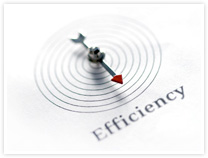Home >> Clinical Services >> Therapy
 At ACCR, therapy services are provided in both English or French, depending on the client's individual needs and request.
At ACCR, therapy services are provided in both English or French, depending on the client's individual needs and request. ACCR specializes in providing the following therapy services:
-
Acquired brain Injury
-
Language
-
Speech
Acquired Brain Injury Therapy
After completing an assessment to determine what areas need improvement, the speech-language pathologist will typically focus on cognitive retraining.
After completing an assessment to determine what areas need improvement, the speech-language pathologist will typically focus on cognitive retraining.
What is Cognitive Retraining?
Cognitive retraining is a therapeutic strategy that a speech language pathologist uses to improve or restore a person's skills in the areas of attention, memory, organizing, reasoning and understanding, problem-solving, decision making, and higher-level cognitive abilities. These skills are all interrelated. Cognitive retraining is one aspect of cognitive rehabilitation, and utilizes a comprehensive approach to restoring such skills after brain injury or other disability.
- Memory: therapy targets improving memory and compensation for memory deficits
-
Attention: therapy targets increasing attention capacity through drill work and self-awareness
- Sustained: the ability to maintain focus on a single task over time
- Selective: the ability to maintain focus on a task with a distraction present
- Divided: the ability to complete two tasks at one time
- Neglect: a deficit of attention where patients do not recognize stimuli/body parts despite the eyes perception of that target
- Problem Solving: cognitive process to determine how to proceed in a given situation
- Reasoning: connecting information into a logical manner
-
Executive Functioning: addresses meta-awareness skills such as self-monitoring, self-control, prospective thinking, and judgment
Language Therapy
ACCR provides language therapy to individuals of all ages with a variety of diagnoses. Language therapy may target receptive language, (comprehension) expressive language, (expression) or both. Language goals generally address:
Clients of all ages are treated for disorders of articulation arising from:
ACCR provides language therapy to individuals of all ages with a variety of diagnoses. Language therapy may target receptive language, (comprehension) expressive language, (expression) or both. Language goals generally address:
- Semantics or vocabulary development
-
Grammar
-
Syntax
-
Appropriate use of language
-
Processing of spoken language (i.e., recall of information, following directions, question processing)
- Higher-level cognitive-linguistic skills (i.e., categorization, comparing/contrasting, inferencing, understanding, and using humour)
Clients of all ages are treated for disorders of articulation arising from:
- Delayed speech development,
- Phonological impairments
-
Neurologically-based impairments (e.g., Apraxia)
References:


 Disorders
Disorders

